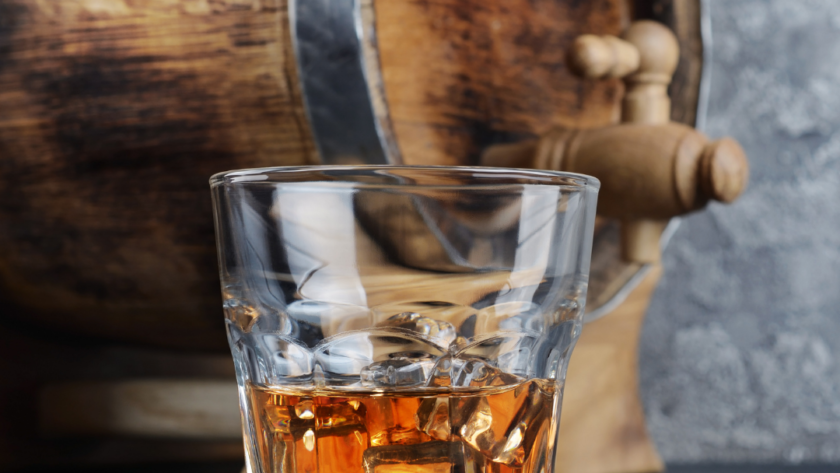Let The Whisky Club introduce you to a world of drams with Australia’s biggest whisky subscription club.
What’s the Whisky Word
As Shakespeare once said, “What’s in a name?” Well, when it comes to whisky something interesting.
The name whisky derives from classical Gaelic, uisge beatha which translates to “water of life”.
This translation can be traced back to a mediaeval Latin phrase, aqua vitae which referred to distilled spirits.
With or Without the ‘e’?
Is it whisky or whiskey?
Some believe that it’s simply a matter of regional language and spelling conventions, whereas others believe it depends on the style and origin of the drink.
Whiskey with an ‘e’ is reserved for the Irish and American. It is believed that in the 19th Century, the Irish began adding the ‘e’ to differentiate their whisky from Scotch whisky.
The simpler ‘whisky’ is solely for the Scots and other whisky-producing countries.
Whisky Origins
The art of distilling was brought to Ireland and Scotland by missionary monks who travelled far and wide to perfect the distillation process.
Lacking in vineyards, they turned to fermenting grain mash, resulting in the first distillation of what was to become modern-day whisky.
Despite this consensus that it was of Celtic origin, there was still much debate regarding the true origins of whisky.
Who can lay claim to one of the most loved spirits, the Irish or the Scottish?
It was thought that the Scottish were the first to produce whiskey in 1494. Recorded in the Exchequer Rolls was a request for ‘eight bolls of malt to Friar John Cor wherewith to make aqua vitae’.
But alas, a discovery! The earliest written mention of whisky appears in the Annals of Clonmacnoise, a chronicle of Irish history.
In 1405 on a Christmas day, Richard Magrannell, Chieftain of Moyntyreolas, had too much ‘aqua vitae’ and met his end.
Women in Whiskey
It’s a man’s world? Not when it comes to whisky. Women have long had a hand in the industry.
As far back as Mesopotamian times, women invented early distillation techniques that influenced whisky distilling.
The foundations of Bushmills, Johnnie Walker, Laphroaig and Maker’s Mark were laid by women.
Taking over from their husbands, sons, and mentors, these women ran, owned and protected the whisky industry during times of war and strife.
The first female master whiskey blender, Rachel Barrie, continues to pave the way and believes that the industry can only benefit from having women involved.
Whisky Begins its Life as Beer
Both loved and with a legion of fans, and seemingly worlds apart, both whisky and beer begin their lives in the same way.
All whisky starts as beer. Like beer brewers, whisky makers start by fermenting grains to release sugars that yeast will convert into alcohol.
However, with whisky, the fermented product is not meant for drinking. What sets beer and whisky apart is that before distillation, the beer has been finished so that it is drinkable.
One could say that whisky is distilled beer. In fact, before heading for distillation, the fermented mash is jokingly referred to as ‘distillers brew’.
Whisky Takes Centre Stage
Whisky has taken to every stage from music halls, royal courts, and sporting arenas.
From pop to country and rock, whisky has had its praises sung and damned. There are even festivals dedicated to celebrating it.
From musical greats like Metallica to superstar athletes like David Beckham, the stars have dabbled in the whisky-making world and have even produced award-winning whisky.
For 200 years, whisky has enjoyed the seal of royal approval. Queen Victoria, known for adding a dash of whiskey to her claret, is credited with popularising Scottish whiskey.
Prohibition was Pro Whisky
During prohibition, whisky stayed put because it was thought to be medicinal.
When all intoxicating liquor was outlawed, whisky could still be obtained with a doctor’s prescription.
Doctors would prescribe whisky for pneumonia, high blood pressure, and tuberculosis. Surprisingly, whisky is still used in emergencies today.
Whisky Saves Lives
In moderate amounts, whiskey is said to bolster the immune system, but can it save a life?
In 1912, Charles Joughin survived the sinking of the titanic, claiming he never succumbed to the freezing waters due to the amount of whisky he had before the tragedy.
While filming The African Queen, the cast became dangerously ill from drinking water, but actor Humphrey Bogart remained intact because he drank nothing but whisky.
Conclusion
Step into the whisky world and learn more about this beloved drink with The Whisky Club



